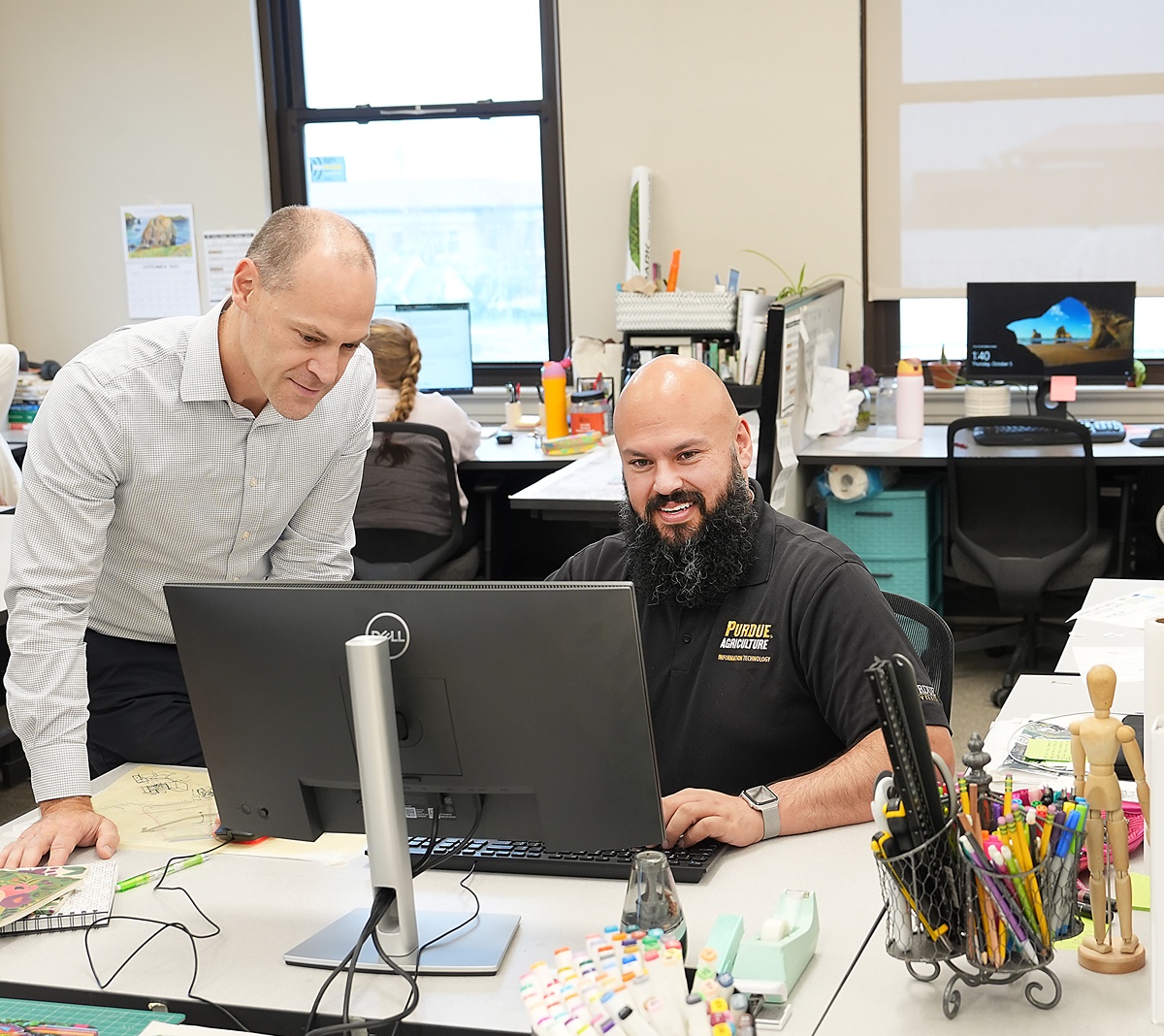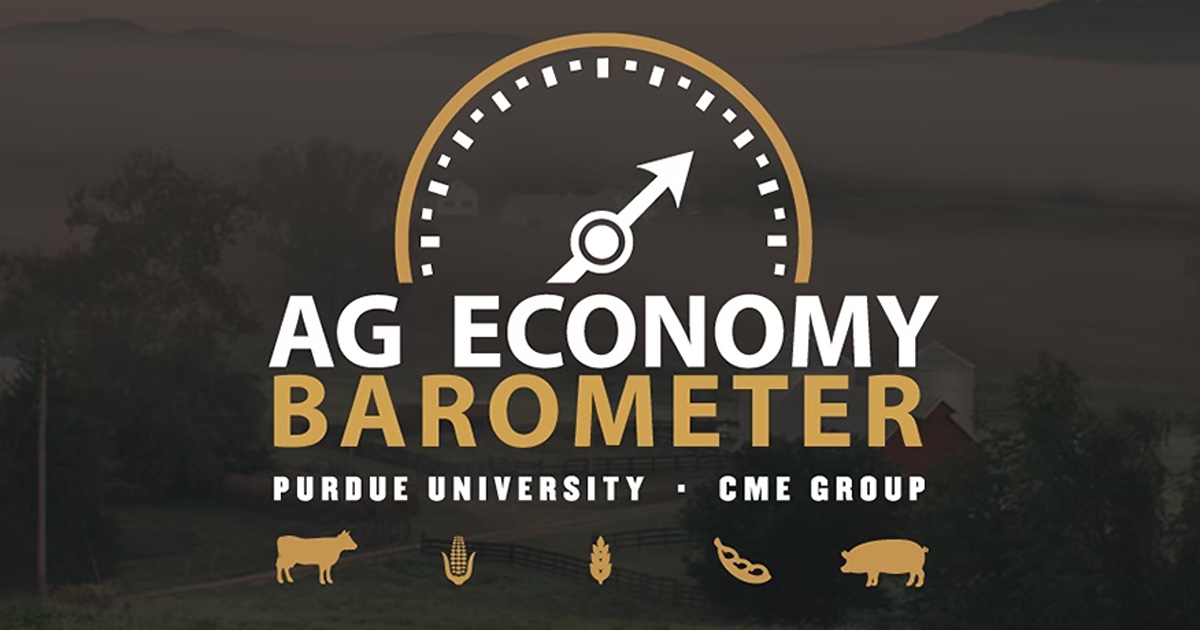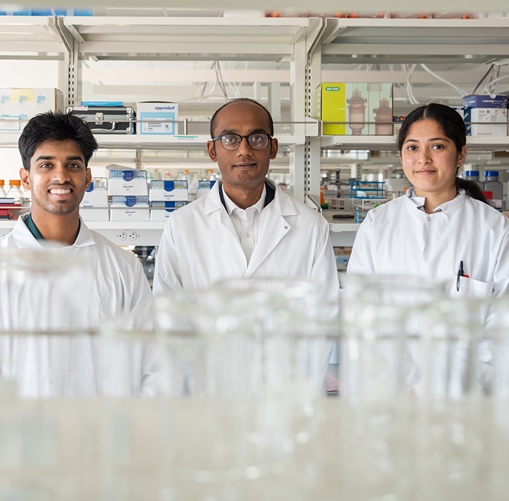AgIT pilot program focuses on personalized approach
When Aaron Walz became head and senior director of the College of Agriculture’s information technology (IT) department, one of his first tasks was to discuss strategy with Leanne McGiveron, director of business relationship management and assistant department head. As they uncovered areas for growth, it became clear that one of the most pressing needs across the college was more personalized support.
While call center and remote support are strong, faculty and staff still needed customized support for their department and individual needs. Walz and McGiveron took a cue from years past to implement a pilot program that would place staff back into departments where they could serve their customers in a more direct way.Stepping out from behind the screen and piloting a more personalized approach
"One of the things we continued to hear was that there was a need for local on-site people who know the work and know the people. Our goal is to provide local, personalized service that understands the department and their needs." – Leanne McGiveron, director, business relationship management and assistant department head of Agriculture IT
In 2021, Agriculture IT launched its "office hours" pilot. The pilot moved trained IT analysts physically into departments with a set weekly schedule so that faculty, students and staff could have face-to-face access to IT services and expertise. The program began with three desktop analysts in three departments. By August 2022, the program grew to include a fourth department.
According to Walz, this change has been instrumental in providing great hands-on support and also in building meaningful working relationships between the IT team and the academic departments they serve. It has also provided higher satisfaction rates for both the analysts and the users.
Jessica Reno, manager of support services, has seen the implementation of the “Office Hours” impact her team's morale.
"My team is getting more involved in research and technology. They have embedded themselves in the academic departments they serve to know their needs more fully and to be able to respond with efficiency and expertise."
McGiveron agrees with Reno. "What has happened when we pull staff from just interfacing through the screen is that we have humanized both the faculty and the analyst. They have gained a deeper understanding of each other, and they have developed relationships in which they are looking for ways to support one another with their expertise."
"As the analysts integrate into the departments, they learn more about the work being done, and there is a pride that comes from supporting these projects,” Walz said. “This has translated to a greater overall pride for the work they are doing for the College because they see the impact they are making," Reno says.
The teamwork, Walz notes, has been something that both parties have expressed benefits from and has made this pilot project a "win" for the college as a whole.
“I have the benefit of having worked in the College as a faculty member, department head, associate dean and now as dean,” said Bernie Engel, Glenn W. Sample Dean of Agriculture. “So, I know firsthand the critical role AGIT plays in the College’s success. Through its personalized approach this pilot is making an important contribution to advancing the College’s research, teaching and outreach missions."
A winning team built on relationships
"It's beneficial for our IT team members to feel like they're part of these departments and have a role in the wins and the cool things our faculty are doing. From the other side, we want faculty and staff members to feel like there's somebody in the IT organization who is a part of their team and who's looking out for them and cares about the department's interests." – Aaron Walz, College of Agriculture information technology (IT) department head and senior director
As the world keeps becoming a bit more "remote," Walz says he firmly believes there are still benefits to face-to-face work in this industry.
The industry is moving towards everything going remote, but that is what we are trying to avoid. We have seen that this model works well. We believe it is important to provide face-to-face support. It matters that you're physically there because you can be more helpful. It matters that you're building that relationship.
- Aaron Walz, head and senior director of the College of Agriculture’s information technology (IT) department







